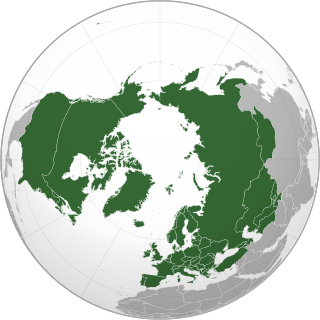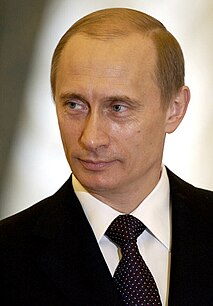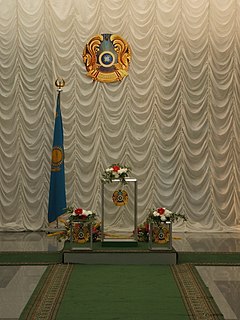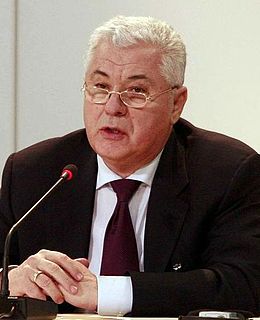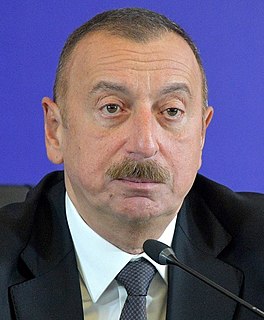| |||||||||||||||||
| Turnout | 71.62% | ||||||||||||||||
|---|---|---|---|---|---|---|---|---|---|---|---|---|---|---|---|---|---|
| |||||||||||||||||
| |||||||||||||||||
Presidential elections were held in Azerbaijan on 9 October 2013. [1] The result was a victory for incumbent President Ilham Aliyev, who received 84.5% of the vote, whilst leading opposition candidate Jamil Hasanli finished second with 5.5% of the vote.

Azerbaijan, officially the Republic of Azerbaijan, is a country in the South Caucasus region of Eurasia at the crossroads of Eastern Europe and Western Asia. It is bounded by the Caspian Sea to the east, Russia to the north, Georgia to the northwest, Armenia to the west and Iran to the south. The exclave of Nakhchivan is bounded by Armenia to the north and east, Iran to the south and west, and has an 11 km long border with Turkey in the northwest.

Ilham Heydar oglu Aliyev is an Azerbaijani politician and currently the fourth President of Azerbaijan, in office since 2003. He also functions as the Chairman of the New Azerbaijan Party and the head of the National Olympic Committee.
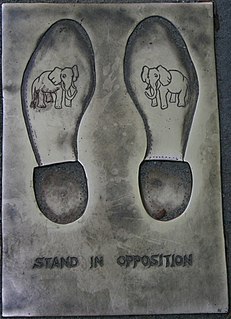
In politics, the opposition comprises one or more political parties or other organized groups that are opposed, primarily ideologically, to the government, party or group in political control of a city, region, state or country. The degree of opposition varies according to political conditions – for example, across authoritarian and liberal systems where opposition may be either repressed or desired respectively.
Contents
- Background
- Candidates
- Conduct
- Results
- Reactions
- International scandal
- Aftermath
- References
- External links
The election was marred by claims of irregularities; official results were accidentally released by the government's Central Election Commission through a mobile app before voting began, giving incumbent Aliyev a victory with 72.38% of the vote. [2] The commission later recalled the results, claiming that they were taken from the 2008 elections. [2] This claim has been disputed, given that the results accidentally released included the candidates from the 2013 elections, [2] and that the percentages differed from the 2008 results.
A mobile app or mobile application is a computer program or software application designed to run on a mobile device such as a phone/tablet or watch. Apps were originally intended for productivity assistance such as Email, calendar, and contact databases, but the public demand for apps caused rapid expansion into other areas such as mobile games, factory automation, GPS and location-based services, order-tracking, and ticket purchases, so that there are now millions of apps available. Apps are generally downloaded from application distribution platforms which are operated by the owner of the mobile operating system, such as the App Store (iOS) or Google Play Store. Some apps are free, and others have a price, with the profit being split between the application's creator and the distribution platform. Mobile applications often stand in contrast to desktop applications which are designed to run on desktop computers, and web applications which run in mobile web browsers rather than directly on the mobile device.
OSCE monitors reported candidate and voter intimidation and a restrictive media environment, including arrests and the use of force against journalists and activists. 92% of the coverage on the six main TV channels were dedicated to the incumbent president. [3]


